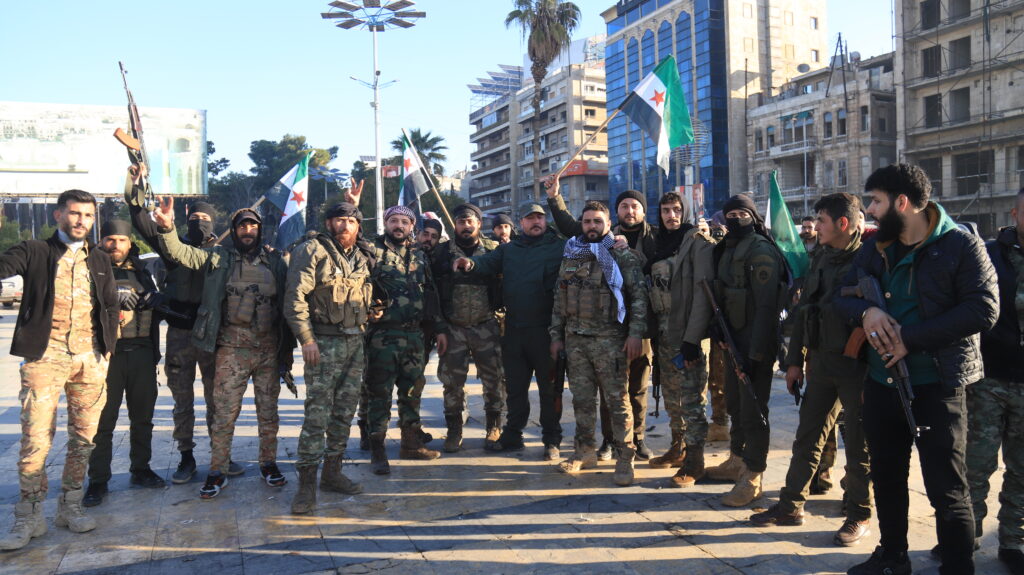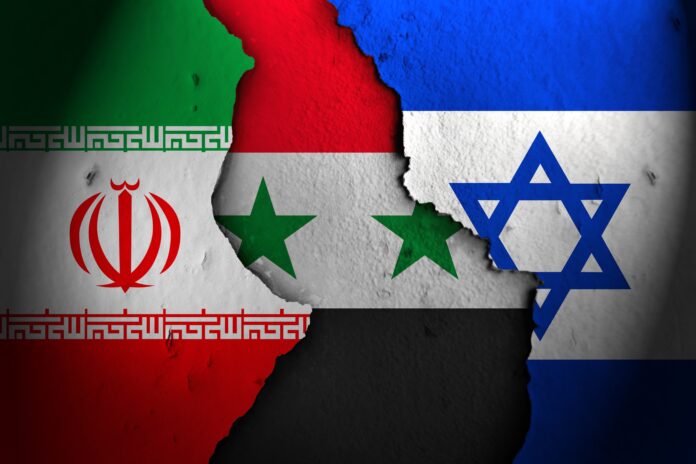Since the rebel offensive began in Syria last week many have speculated about Israel’s position vis-a-vis the fighting, so let’s take a look at what Israeli politicians and analysts are saying.
Yesterday, Israeli Foreign Minister Gideon Sa’ar announced that Israel does not intend to support any party in the ongoing conflict in Syria.
During his participation in a security conference organised by the newspaper Israel Hayom, Sa’ar said: “Israel is not a direct party to the military operations but is closely monitoring developments in the Syrian scene.”
Earlier, Prime Minister Benjamin Netanyahu said his government is closely following developments in Syria and is determined to protect what he claimed as “our vital interests.”
The comments came after clashes erupted on November 27 between Syrian armed opposition factions, ed by Hayat Tahrir al-Sham (HTS), and forces of Bashar al-Assad’s regime in the western countryside of Aleppo (northeast).
The opposition factions later took control of Aleppo city, followed by the full capture of Idlib province on Saturday.
Meanwhile, on Sunday evening, the Turkish-backed Syrian National Army seized control of the city center of Tal Rifaat as part of an operation launched against the PKK/YPG organisation.
Subscribe to our newsletter and stay updated on the latest news and updates from around the Muslim world!

Russian and Syrian jets have responded by bombing rebel positions.
Iran’s Foreign Minister, Abbas Araghchi visited Damascus for talks with senior Syrian government officials and told journalists that Tehran would continue supporting President Assad. Assad also received calls of solidarity from King Abdullah II of Jordan and Sheikh Mohamed bin Zayed Al Nahyan of the United Arab Emirates.
Dozens of Iranian linked and backed Iraqi militia members from Kataib Hezbollah have reportedly crossed into Syria to fight in support of the regime. While currently small in number, a larger deployment of Iraqi forces is probable and would mirror their earlier involvement in the Syrian Civil War.
According to the Israeli think-tank BICOM, there are mixed feelings within the Israeli leadership about what’s happening in Syria.
On the one hand, any weakening of the Syrian regime – that is heavily backed by Hezbollah and Iran – is a positive outcome for them. Chaos in Syria would also impede Iran’s ability to funnel weapons to Hezbollah in Lebanon.
However concern exists that so-called “Sunni extremists” could one day also pose a threat to the Israeli border.
BICOM said: “With Hezbollah forces now being deployed into Syria to support Assad, this could help preserve the Israeli-Hezbollah ceasefire as it makes Hezbollah less likely to attack Israel. Israeli media quoted intelligence sources saying that ‘freedom of military operation will apparently widen’ as Israel continues to prioritise preventing the transfer of weaponry to Hezbollah and other Iranian proxies from Syria into Lebanon.
“However, it also appears that Iran is sending more Shiite proxy fighters to help defend the Syrian regime, giving Israel a dilemma of whether to attack them or not.”
BICOM added: “There is heightened concern over sensitive sites in the Aleppo area, including chemical weapons, that Israel considers a strategic threat if they were to fall into the hands of Jihadis.”
The Israeli think-tank also said that Hayat Tahrir al-Sham’s successes are also causing a degree of concern in Israel given its previous identity as Al Qaeda’s Syrian franchise.






![The Taliban’s Road To Success [Short Film]](https://5pillarsuk.com/wp-content/uploads/2024/11/Kabul-roadworks-thumbnail-218x150.png)


![Monsoon Revolution: Bangladesh 2.0 [Short Film]](https://5pillarsuk.com/wp-content/uploads/2024/11/Monsoon-thumbnail-218x150.png)
![The Taliban’s war on drug addiction [Short film]](https://5pillarsuk.com/wp-content/uploads/2024/09/IMG_1988-2-218x150.png)










